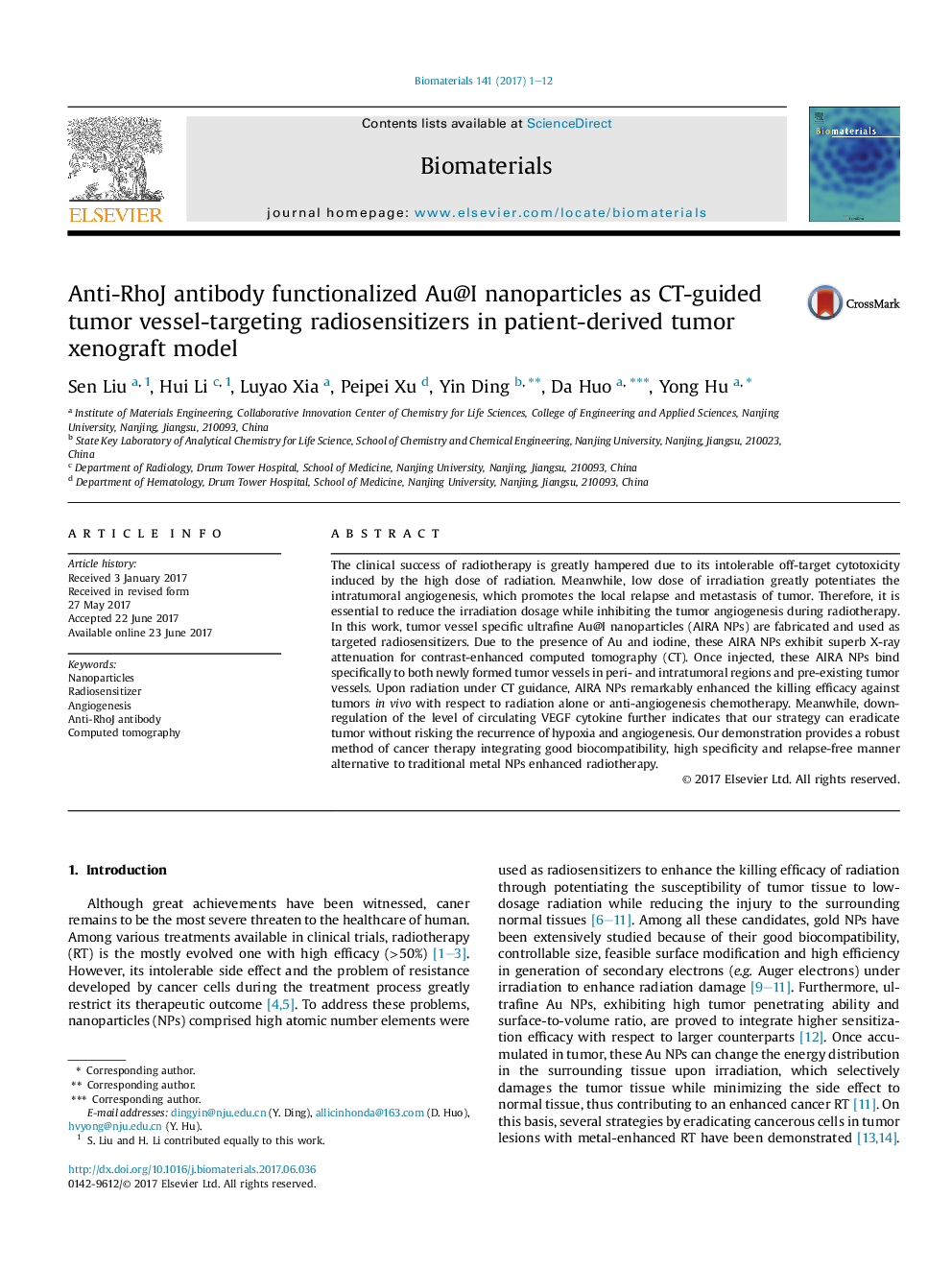| Article ID | Journal | Published Year | Pages | File Type |
|---|---|---|---|---|
| 6450597 | Biomaterials | 2017 | 12 Pages |
The clinical success of radiotherapy is greatly hampered due to its intolerable off-target cytotoxicity induced by the high dose of radiation. Meanwhile, low dose of irradiation greatly potentiates the intratumoral angiogenesis, which promotes the local relapse and metastasis of tumor. Therefore, it is essential to reduce the irradiation dosage while inhibiting the tumor angiogenesis during radiotherapy. In this work, tumor vessel specific ultrafine Au@I nanoparticles (AIRA NPs) are fabricated and used as targeted radiosensitizers. Due to the presence of Au and iodine, these AIRA NPs exhibit superb X-ray attenuation for contrast-enhanced computed tomography (CT). Once injected, these AIRA NPs bind specifically to both newly formed tumor vessels in peri- and intratumoral regions and pre-existing tumor vessels. Upon radiation under CT guidance, AIRA NPs remarkably enhanced the killing efficacy against tumors in vivo with respect to radiation alone or anti-angiogenesis chemotherapy. Meanwhile, down-regulation of the level of circulating VEGF cytokine further indicates that our strategy can eradicate tumor without risking the recurrence of hypoxia and angiogenesis. Our demonstration provides a robust method of cancer therapy integrating good biocompatibility, high specificity and relapse-free manner alternative to traditional metal NPs enhanced radiotherapy.
Graphical abstractAnti-RhoJ antibody functionalized hybrid nanoparticles are used as tumor vessel targeting radiosensitizers. By taking patient-derived tumor model, this platform can precisely target the tumor vasculature under CT guidance, and locally inhibit angiogenesis upon low-dosage of radiation in relapse-free manner.Download high-res image (258KB)Download full-size image
